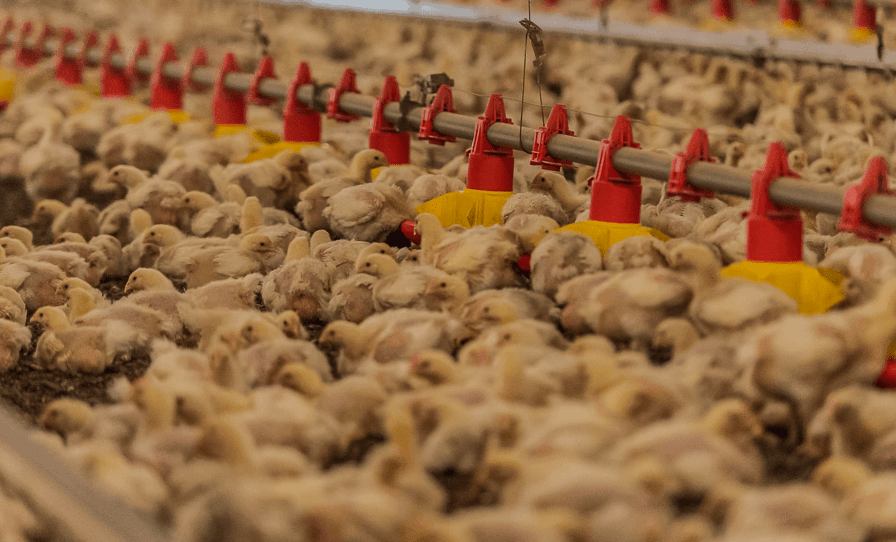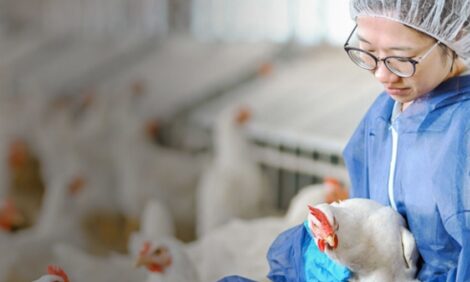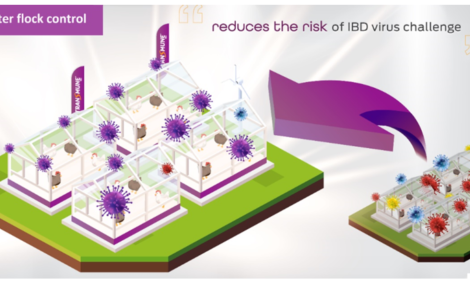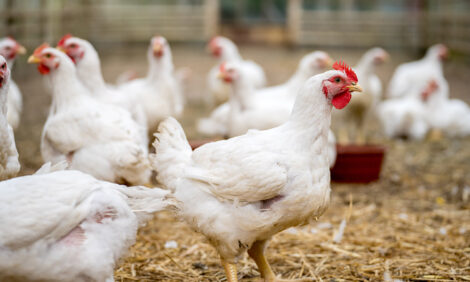



Gumboro Disease: the challenge, and the control part 2
Part 2 of 6Part of Series:
< Previous Article in Series Next Article in Series >
In the first part of a series of 6 articles we discussed how Gumboro Disease (Infectious Bursal Disease or IBD) impacts on poultry production. Now we will start to describe how to control the disease.
Some key approaches that should be considered:
- Vaccination of the breeders, to transfer Maternal Antibodies to the chicks
- Vaccination of the broilers
- Biosecurity
- Diagnostic and surveillance
- Environment management
Vaccination of the breeders
An well designed vaccination program in the breeders to provide Maternal Delivered Antibodies (MDAs) to the day-old chicks will be essential to start the control of Gumboro disease.
it will protect the young chicks for the first few weeks of life. Live vaccination is applied in the progeny because passive immunity does not last long enough to ensure adequate protection for the whole broilers’ lifespan. By doing so, chickens develop an active immunity.

This way vaccinating breeder flocks against Gumboro plays a crucial role in controlling the disease in broilers. The vaccination of breeder birds has a direct impact on the immunity and disease resistance of their progeny (broiler chickens) and can significantly contribute to Gumboro control in the following ways:
- Maternal Antibody Transfer: When breeder hens are vaccinated against Gumboro disease, they produce antibodies against the virus. These antibodies are then transferred to their chicks via the egg yolk and the chick's bloodstream. This passive immunity helps protect broiler chicks during their early life stages, as maternal antibodies provide immediate defense against the virus.
- Early-Life Protection: The passive immunity acquired from the breeder hen's antibodies provides critical protection during the first few weeks of a broiler chick's life. During this time, the chick's own immune system is still developing, and it is highly susceptible to Gumboro disease. Maternal antibodies help bridge this gap and reduce the risk of early Gumboro disease infection.
However, the broiler chicks should be vaccinated with live vaccine to build their own active immunity as maternal antibodies decline.
In summary, breeder vaccination is a critical component of Gumboro disease control in broilers. It helps provide early-life protection to chicks, reduces disease spread, and supports the development of active immunity in broilers. Careful planning, coordination, and monitoring of vaccination programs are essential for maximizing the effectiveness of this control strategy.














